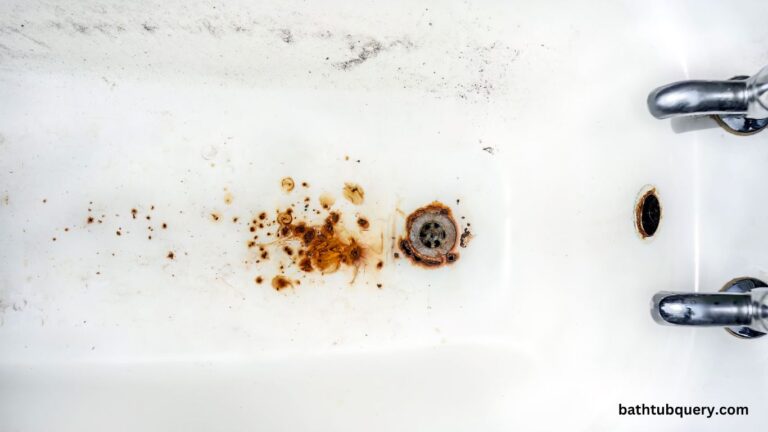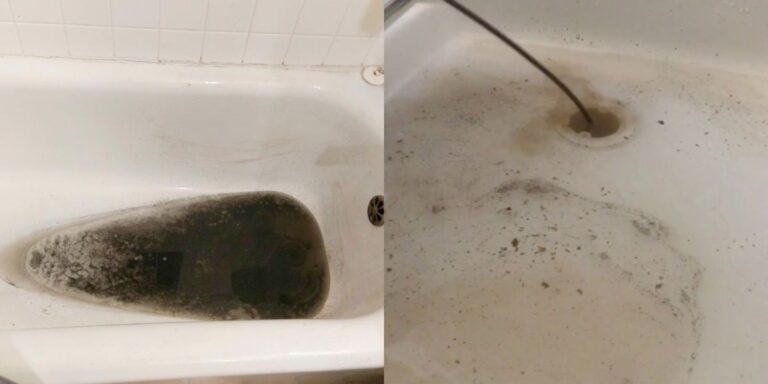Can You Get Electrocuted in the Bathtub?
Taking a warm bath is one of life’s simple pleasures. As you sink into the tub and feel the hot water relax your muscles, the last thing on your mind is the danger of electrocution. However, electrical accidents do occur in the bathroom, especially when electrical appliances are near water. So can you actually get electrocuted in the bathtub? Let’s take a closer look at the risks and how to stay safe.
Can You Get Electrocuted in the Bathtub?
Yes you can! Dropping something electric, like a hairdryer or radio, into the tub can zap you. Old wiring near leaks or outlets too close to the tub are also risky. The water acts like a conductor, allowing the electricity to flow right through you.
It doesn’t happen too often, but every year there are some folks who get quite a jolt trying to relax in the bath. It’s best to keep electronics far from the tub and make sure your wiring’s up to snuff. While the odds are low, it only takes one slip-up to turn bath time into a shocking experience, so stay vigilant!
Related query Can You Get Electrocuted In The Bathtub During A Thunderstorm?
What Causes Electrocution in the Bathtub?
Several hazards can lead to bathtub electrocution by allowing electricity to reach the water:
- Faulty Electrical Appliances: Using electrical devices around water is always risky. If the appliance has damaged wiring or other defects, contact with water can cause a shock. Hair dryers, razors, and other bathroom gadgets pose an electrocution risk if they fall into the tub.
- Dropping Appliances into Water: Even appliances in good condition can electrocute you if they end up submerged. The water completes the circuit for you. Unplug appliances before using them near the tub.
- Damaged Cords: Exposed or frayed wires in an appliance’s cord can leak electricity into the water. Inspect cords regularly and replace any that show wear. Avoid using extension cords in the bathroom.
- Poor Home Wiring: Outdated wiring, ungrounded outlets, and other electrical issues can cause safety hazards. If water contacts faulty wiring, it can energize the tub’s water. Hire an electrician to inspect the wiring.
| Location of Outlets | Recommended Minimum Distance from Bathtub |
|---|---|
| Above tub deck | At least 12 ft |
| Adjacent surface near tub | At least 3 ft |
Code Requirements for Bathtub Outlet Distance. Source: NFPA 70 National Electric Code
As shown in Table 1, outlets installed too close to the tub are more likely to energize the water if leakage occurs. Building codes restrict outlet placement to prevent this.
Steps to Avoid Electrocution
You can take proactive steps to enhance electrical safety in the bathroom:
- Check Appliances Before Bathing: Inspect devices like hair dryers for any damage to the cord or plug. Never use appliances with frayed cords.
- Keep Electrical Items Away From Water: Even moisture can be dangerous. Never handle or plug in electrical devices near a full tub. Install outlets far from the tub, according to building codes.
- Install GFCI Outlets: GFCI (ground fault circuit interrupter) outlets shut off power if electricity leaks through insulation. They can prevent major shocks. Have a licensed electrician install GFCIs in bathrooms.
- Hire an Electrician: If your bathroom has outdated wiring without a ground line, hire a pro to upgrade it. They can catch issues within walls that you can’t see.
What to Do if Electrocuted in the Tub?
If you do suffer an electrical shock in the bathtub, follow these steps:
- Do Not Enter the Water: The current will continue flowing through the water, posing a deadly risk to you. Do not attempt to rescue a person being electrocuted until the power is cut off.
- Disconnect the Power Source: If possible, turn off the circuit breaker in the bathroom or unplug the faulty appliance. This stops the dangerous current flow.
- Begin CPR if Needed: Once power is off, check the person’s breathing and pulse. Perform CPR if they are unresponsive and not breathing normally.
- Call Emergency Services: Call 911 or your local emergency number immediately. Electric shock can cause internal injuries and abnormal heart rhythms, requiring prompt medical treatment.
Though it may be tempting to pull the person from the water, do not touch them or enter the tub until the electricity is disconnected. Otherwise, you risk becoming a victim too.
Preventing Future Electrocution Accidents
Many electrical accidents can be prevented through education and proper safety techniques, like:
Educate Families on Risks:
Children and some adults may not realize the dangers of using electrical devices near water. Clearly communicate the risk of electrocution.
Advocate for Improved Electrical Codes:
Building codes should evolve with safety research. Advocate for mandating GFCI outlets and greater outlet distances from tubs.
Inspect Home Wiring:
Hire an electrician to thoroughly evaluate the wiring every 5–10 years or before moving into a new home. They can find hidden risks.
Buy Newer Electrical Items:
New appliances have additional insulation and protection that older models lack. Upgrade hair dryers, shavers, and other bathroom gadgets regularly.
Dry Hands Before Using Appliances:
Never handle electrical items with wet hands or while in contact with water. Short circuits can happen.
Following safety guidelines and using electrical appliances appropriately reduces the chances of bathtub electrocution. But accidents can still occur, so be prepared to act fast.
Concluding Thoughts
Electrical hazards do exist in bathrooms, especially when using appliances near water. Faulty devices, outdated wiring, and improper use of electronics can allow current to flow through tub water and electrocute bathers. To stay safe, inspect equipment before bathing, keep a distance from outlets, upgrade wiring, and educate family members.
With proper precautions, you can continue enjoying relaxing soaks without fear of shocks. Just remember that water and electricity do not mix safely. Exercise caution and immediately disconnect power if an incident occurs. By understanding electrocution risks, you gain control over preventing this hazard in your home.
FAQs
Can you get electrocuted by dropping a hairdryer in the bathtub?
Yes, dropping a plugged-in hairdryer into water can electrocute you, as it energizes the water and completes a circuit through your body.
What appliances should never be used near a bathtub?
Hair dryers, radios, phones, televisions, and other electronics should never be handled near a full bathtub or entered into the water due to the electrocution risk.
Do rubber ducks protect you from electrocution?
No, rubber ducks provide no protection from electrocution in the bathtub, despite myths. The water still conducts electricity.
Can an extension cord be used in a bathroom?
No, extension cords should not be used in bathrooms or near water due to the risk of electric shock or fire from short circuits.
How close can outlets be to a bathtub?
Building codes require outlets to be at least 3 feet away from a bathtub if adjacent to it, and over 12 feet above the tub.

William J. Bullock is a licensed plumber with over 15 years of experience installing and repairing bathtubs. He runs his own plumbing company in Greenville and serves residential and commercial clients. William is dedicated to providing honest, transparent advice to help homeowners make informed decisions about their bathroom renovations.
He has established expertise in selecting bathtubs, planning custom installations, diagnosing issues, and completing repairs. William aims to share practical tips and reliable recommendations based on extensive hands-on work. When he isn’t on a job site, William enjoys spending time with his family and volunteering at local community events. He takes pride in delivering quality service and enjoys helping people upgrade their homes.







